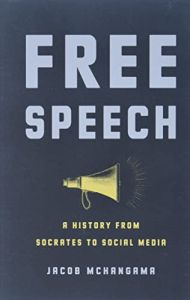Únase a getAbstract para acceder al resumen.

Únase a getAbstract para acceder al resumen.
Jacob Mchangama
Free Speech
A History from Socrates to Social Media
Basic Books, 2022
¿De qué se trata?
Freedom of speech and the press are crucial to human freedom. Their erosion puts people at risk.
Recommendation
Freedom of speech has nurtured democracy since ancient Athens, though rulers and some religions suppressed it for centuries. The Reformation and the printing press made free speech almost impossible to restrain, explains author and podcaster Jacob Mchangama, the founder and executive director of the Future of Free Speech Project. With the 1700s French Declaration of the Rights of Man and of the Citizen, and the ratification of the US Constitution’s First Amendment, freedom of speech and the press became intrinsic to Western democracy. However, autocrats suppress these freedoms, and technology challenges them. As the author explains, people and governments must treasure free speech and use it with care.
Summary
About the Author
Jacob Mchangama is the founder and executive director of the Future of Free Speech Project. He hosts the podcast Clear and Present Danger: A History of Free Speech.


















Comment on this summary